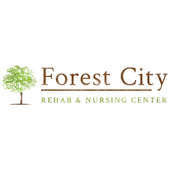Overview
Responsible for the development, implementation and evaluation of systems and programs directed toward the provision of quality services for trauma patients from a multidisciplinary perspective across the entire spectrum of trauma service care. Will work in collaboration with the Trauma Surgeons, Trauma Mid-level Provider, and other Trauma Service Practitioners. This individual is expected to have a clinical background with trauma experience as well as an economic and business understanding of trauma services and healthcare.
Responsibilities
ESSENTIAL DUTIES AND RESPONSIBILITIES
Clinical Activities:
- Coordinates with the development of prevention, education and outreach programs.
- Provides and delivers trauma training/outreach to internal and external partners based on needs assessment.
- Develops and provides trauma education and prevention to patients, families and partners.
- Resource for unit based educators when developing trauma orientation or education.
- Participates in State Trauma Injury and Prevention Committees or other committees as assigned.
- Assist in ensuring that all care throughout the continuum is coordinated, cost efficient, and results in optimal outcomes.
- Provide and document trauma care in accordance with standards relating to the care of trauma patients.
- Assists with the development and implementation of clinical protocols and practice management guidelines for trauma patient populations incorporating members from the multidisciplinary team.
- Serves as a resource for clinical staff.
Administration:
- Adheres to hospital policies and procedures and standards through observation, medical record review, staff feedback and other appropriate sources.
- Performs concurrent data abstraction, entry and maintenance of the IDPH Trauma Registry per State Rules.
- Promote customer service. Ability to resolve patient concerns and implements processes to prevent future incidents.
- Ensures the Trauma Program meets all criteria required by the IDPH Administrative Rules to obtain and maintain Trauma Program designation.
- Participates in trauma administrative and quality meetings.
- Represents Javon Bea Hospital Rockton campus at regional and State trauma meetings
- Strong organizational skills and the ability to coordinator people and projects in a fiscally responsible manner.
Education Responsibilities:
- Direct community trauma education and prevention programs by developing, implementing, and evaluating programs for targeted populations in the city and surrounding communities related to injury prevention.
- Develops and implements educational opportunities and programs for regional hospitals.
- Assists in the coordination of trauma education programs such as ATLS, TNS and TNCC.
- Participate in education programs as needed.
Coordination/Supervision Responsibilities:
- Assist in the development, implementation and evaluation of a quality plan, which is multi-disciplinary and focused on patient outcomes.
- Serve as the coordinator of the identification, investigation, reporting and follow up of incidents and quality issues throughout the program while maintaining confidentiality.
- Supervise the collecting, coding, scoring and developing of processes for validation of data entered into the registry.
- Sufficiently understand the trauma registry system to be capable of facilitating performance improvement activities, compiling trend reports, and conducting research while protecting confidentiality.
- Monitor protocol adherence/variances
- Other duties as assigned.
CULTURE OF EXCELLENCE BEHAVIOR EXPECTATIONS
To perform the job successfully, an individual should demonstrate the following behavior expectations:
Quality - Follows policies and procedures; adapts to and manages changes in the environment; Demonstrates accuracy and thoroughness giving attention to details; Looks for ways to improve and promote quality; Applies feedback to improve performance; Manages time and prioritizes effectively to achieve organizational goals.
Service - Responds promptly to requests for service and assistance; Follows the Mercyhealth Critical Moments of service; Meets commitments; Abides by MH confidentiality and security agreement; Shows respect and sensitivity for cultural differences; and effectively communicates information to partners; Thinks system wide regarding processes and functions.
Partnering - Shows commitment to the Mission of Mercyhealth and Culture of Excellence through all words and actions; Exhibits objectivity and openness to other's views; Demonstrates a high level of participation and engagement in day-to-day work; Gives and welcomes feedback; Generates suggestions for improving work: Embraces teamwork, supports and encourages positive change while giving value to individuals.
Cost - Conserves organization resources; Understands fiscal responsibility; Works within approved budget; Develops and implements cost saving measures; contributes to profits and revenue.
EDUCATION AND EXPERIENCE
Graduate of an accredited nursing program (RN or APNP).
BSN required.
MSN preferred.
Three to five years of experience in clinical nursing with required ICU or ER/Trauma experience.
TNS or TNCC preferred
Experience in lecturing preferred
CERTIFICATION AND LICENSURE
Licensed as an RN or APNP in the State of Illinois
Evidence of continuing professional growth membership in a professional nursing organization
Currently possess one of the following: Trauma Nurse Specialist (TNS), Trauma Nurse Core Certification (TNCC), Certified Emergency Nurse (CEN) or Certified Critical Care Registered Nurse (CCRN)
Basic Life Support (BLS) and/or Advanced Cardiac Life Support (ACLS)
It is preferred but not required that the candidate possess Pediatric Advanced Life Support, (PALS) or Emergency Nurse Pediatric Course (ENPC)
ADDITIONAL REQUIREMENTS
Passing the Driver’s License Check and/or Credit Check (for those positions requiring)
Passing the WI Caregiver Background Check and/or Illinois Health Care Workers Background Check.
Must be able to follow written/oral instructions.
OTHER SKILLS AND ABILITIES
Demonstrate ability to establish and maintain effective interpersonal relationships and communication.
Demonstrate ability to accept and implement change.
Demonstrate ability for problem solving and decision making.
Consultative, teaching, and research skills.
WORK ENVIRONMENT
Occupational exposure is Category A which means all employees in the specified job classifications have occupational exposure
AGE OF PATIENTS SERVED
Neonate (birth – 28 days)
Infant (29 days – less than 1 year)
Pediatric (1 year – 12 years)
Adolescents (13 years – 17 years)
Adult (18 years – 64 years)
Geriatric (65 years and older)
INFORMATION ACCESS
Partner may access patient care information needed to perform their job duties
Partner may access strategic and planning data
WORK CONTACT GROUP
Partners, physicians, patients/family, visitors, vendors, including other physician offices, and other hospital/clinical personnel.
SPECIAL PHYSICAL DEMANDS
The Special Physical Demands are considered essential job function of the position with or without accommodations.
This job position requires the employee to frequently stoop, reach with arms and hands, reaching, handling, fingering, talking and hearing. It requires the frequent use of near acuity and color vision. This job requires occasional use of feeling. It requires occasionally exerting 20 to 50 pounds of force and 10 to 25 pounds of force frequently.
LEVEL OF SUPERVISION
Some independent judgment is required, but alternatives are limited by standard practices or procedures.
SUPERVISES
As described, but not limited to duties under essential duties and responsibilities.









